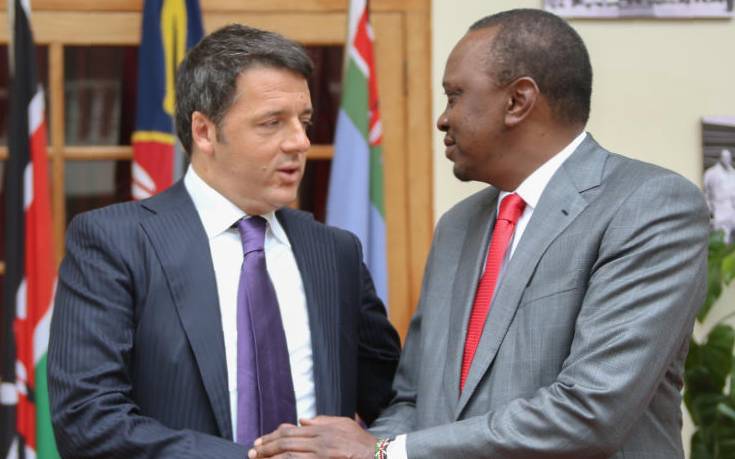×
The Standard e-Paper
Kenya’s Boldest Voice

President Uhuru Kenyatta with Italian Prime Minister Matteo Renzi when he called on him at State House, Nairobi. 20151407 -3: Uhuru and Renzi witnessed the signing of a Ksh.34 Billion Financing Agreement to finance the construction of the Itare Dam Water Supply. [File, Standard]
One night in mid July 2015, then Italian Prime Minister Matteo Renzi arrived in Nairobi for a two-day visit.